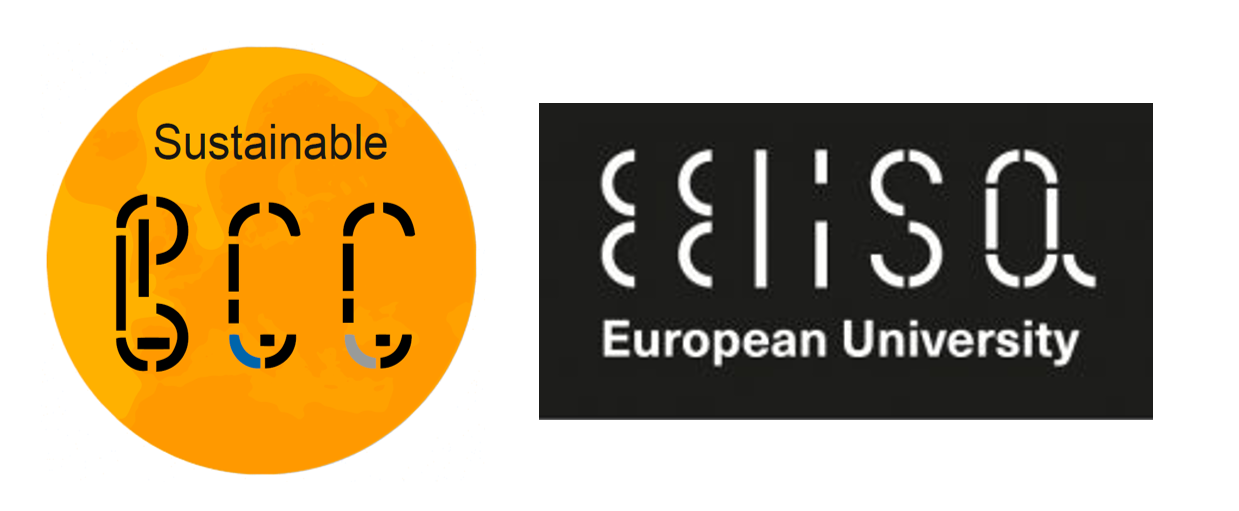LDAC2024 - Linked Data
in Architecture
and Construction
Call for Participation
LDAC presents a forum for technical and applied research on the usage of semantic web, linked data and web of data technologies for architecture and construction (design, engineering, construction, operation).
The workshop aims at gathering researchers, industry stakeholders, and standardization bodies of the broader Linked Building Data (LBD) community. The workshop series has been held yearly since 2012, taking place in numerous locations and venues, sometimes co-located with AEC or web technology conferences and sometimes as independent events. The workshop welcomes industry participation and brings together experts from the AEC field with computer scientists and software developers familiar with (semantic) web technologies.
Three Tracks
In 2024, the workshop will again be organised as a fully stand-alone event, in combination with a summer school and in one single location in Bochum, Germany. As in the past years, the workshop covers work from three perspectives: research, technical discussions and industry developments. In short, LDAC welcomes stakeholders from research and practice and serves as a common communication platform to advance and innovate the use of linked data in architecture and construction.
Semantics Scope
LDAC aims at providing a forum for technical discussion on the topic of handling data in architecture and construction. A large part of the workshop is concerned with the use of (semantic) web technologies. Research is welcomed on the use of ontologies and vocabularies for representing building data, 3D geometry, product data, geospatial data, infrastructure data, HVAC data, sensor data, and so forth.
Call for Papers (PDF)Focus on Data
Additionally, the workshop welcomes work on how to combine these highly semantic datasets with other data sets, which in the case of architecture and construction consist mainly of geometry and sensor data streams. Using different data storage techniques (semantic data stores, time series databases, key-value stores), the purpose of the LDAC workshop is to investigate ways in which data can be combined into a complete and holistic set of available building data.
Industry Practice
Practical techniques of combining datasets in the current web-based and data-driven world are explored: Internet of Things, Machine Learning, Digital Twins, Building Information Modelling. A number of industry cases are invited, presenting interesting ideas, use cases, solutions or experience reports related to practical applications at any stage of construction lifecycle.
Topics
Workshop Topics
Workshop topics include the following. These are indicative topics, similar other topics are welcome as well.
Linked Building Data
- Linking building data: product, properties, 3D, sensor data modelling
- GIS - BIM integration using linked data approach
- Knowledge graphs for existing buildings
- Building-related ontologies: BRICK, IFC, BOT, OMG/FOG, OPM, DOT
- Infrastructure modelling: rail, road, infra
Graphs
- Graph data modelling
- Publishing Building Data on the Web
- Graph analytics and semantic data lakes
- Visualization of construction data
Ontologies and Inference
- Ontology Engineering
- Mapping and alignment of data or ontologies
- Semantic enrichment for AEC Industry
- Semantic web services: RDF, JSON-LD
- Semantic query systems
- Reasoning, rule systems, machine learning
Systems
- Operational system integration
- Semantic Digital Twins
- Linked building data management over time and stakeholders
- Security and access control with RDF data
Submission
Submission
Submission and publication of LDAC articles are handled through the EasyChair platform and the CEUR-WS Proceedings publication platform.
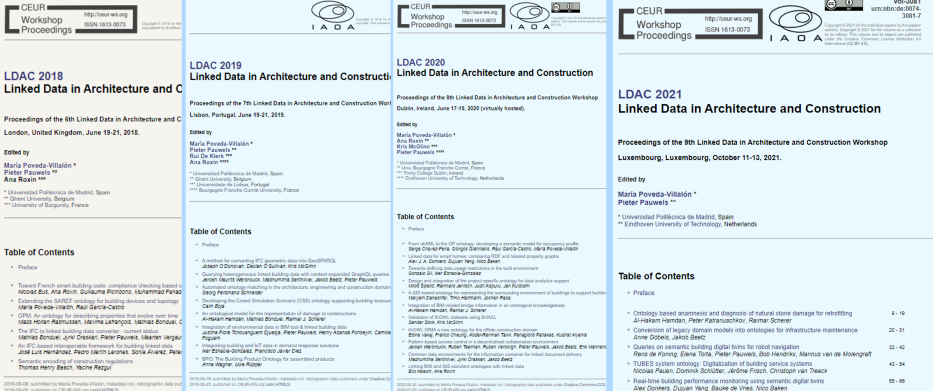
Programme Committee
- Jakob Beetz
- Calin Boje
- Lasitha Chamari
- David Chaves
- Andrea Cimmino
- Gonçal Costa
- Aaron Costin
- Alex Donkers
- Diellza Elshani
- Raúl García-Castro
- Philipp Hagedorn
- Ana Iglesias-Molina
- Maxime Lefrançois
- Dimitris Mavrokapnidis
- Claudio Mirarchi
- Jyrki Oraskari
- Nicolas Pauen
- Pieter Pauwels
- Ekaterina Petrova
- María Poveda-Villalón
- Dimitrios Rovas
- Ana Roxin
- Oliver Schulz
- Madhumitha Senthilvel
- Álvaro Sicilia
- Daniele Spoladore
- Walter Terkaj
- Edlira Vakaj
- Jeroen Werbrouck
- Sven Zentgraf
Important Dates
Registration opens:
January 19, 2024 January 31, 2024
Abstract submission deadline (optional - no review):
January 19, 2024 January 31, 2024
Paper submission deadline:
February 02, 2024 February 16, 2024
Poster track submission deadline:
February 18, 2024 March 28, 2024
Notification of acceptance:
March 15, 2024
Final paper submission:
April 19, 2024
LDAC Summer School: 10-14 June 2024
LDAC Workshop: 13-14 June 2024
EasyChair
Scientific research papers and PhD posters are both welcome for submission in the LDAC2024 Easychair platform. Make your submission in PDF at https://easychair.org/my/conference?conf=ldac2024# before the poster or paper submission deadline. Please follow the CEUR WS Proceedings template (Word, LaTeX) in one-column format, both for the research papers and the posters, and make a submission directly via EasyChair in PDF. This can also be prepared using the template file in Overleaf, as mentioned in http://ceur-ws.org/Vol-XXX/.
Paper Review Procedure
Research paper submissions will be peer-reviewed by the Program Committee. All accepted papers will be published as part of a separate volume of the CEUR-WS proceedings separated by full papers (10-14 pages) and short papers (5-9 pages). This does not include the industry contributions, which follow a different industry track procedure, nor the poster presentations, which can be submitted in a separate poster track. All CEUR-WS proceedings are scopus-indexed.
Poster Review Procedure
To present a poster at LDAC2024, you have to submit an extended abstract of your work via the EasyChair platform. Extended abstracts for the PhD poster track must contain max. 500 words describing the content of the work to be presented in the poster. Please follow the CEUR WS Proceedings template (Word, LaTeX) in one-column format. Submissions are reviewed by the program committee regarding their topicality and quality. They will not be published in the workshop proceedings.
CEUR Workshop Proceedings
All CEUR-WS proceedings are scopus-indexed. Previous proceedings can be found here:
- LDAC 2023 - CEUR-WS Proceedings Vol. 3633
- LDAC 2022 - CEUR-WS Proceedings Vol. 3213
- LDAC 2021 - CEUR-WS Proceedings Vol. 3081
- LDAC 2020 - CEUR-WS Proceedings Vol. 2636
- LDAC 2019 - CEUR-WS Proceedings Vol. 2389
- LDAC 2018 - CEUR-WS Proceedings Vol. 2159
For more information or questions, you can contact the organisers at ldac2024[AT]linkedbuildingdata.net.
Keynotes
Keynotes
In addition to the SSoLDAC Summer School keynote presentation, the LDAC workshop hosts two excellent keynotes on Thursday and Friday.

Raúl García-Castro
Ontology Engineering Group, UPM
Dr. Raúl García-Castro is Associate Professor at the Computer Science School at Universidad Politécnica de Madrid (UPM), Spain. After three years as a software engineer, since he graduated in Computer Science (2003) he has been working at UPM in the Ontology Engineering Group in several European and Spanish research projects. His research focuses on the ontological engineering, semantic interoperability, and ontology-based data and application integration. In 2008 he obtained a Ph.D. in Computer Science and Artificial Intelligence at the UPM with his thesis titled “Benchmarking Semantic Web technology”, which obtained the Ph.D. Extraordinary Award at UPM. He regularly participates in standardization bodies (W3C, OASIS, AENOR) and in the program committees of the conferences and workshops that are most relevant in the field and has organised several international conferences and workshops. You can find out more about Raúl on his website: http://www.garcia-castro.com.
Keynote Title
Lessons Learnt from Researching on Semantic Interoperability
Seamless interoperability is still a challenge in the current landscape of information systems, which need to be aware of cross-sectorial information coming not only from other information systems but also from people or diverse entities in the world. This talk presents some lessons learnt from researching and implementing semantic interoperability. On the one hand, it will cover the semantic aspect of interoperability, giving guidelines on the development of ontologies and on their role for sharing consensus. On the other hand, it will deal with the interoperability perspective, giving hints on engineering semantically interoperable systems and presenting challenges in decentralised interoperability, such as the privacy one.
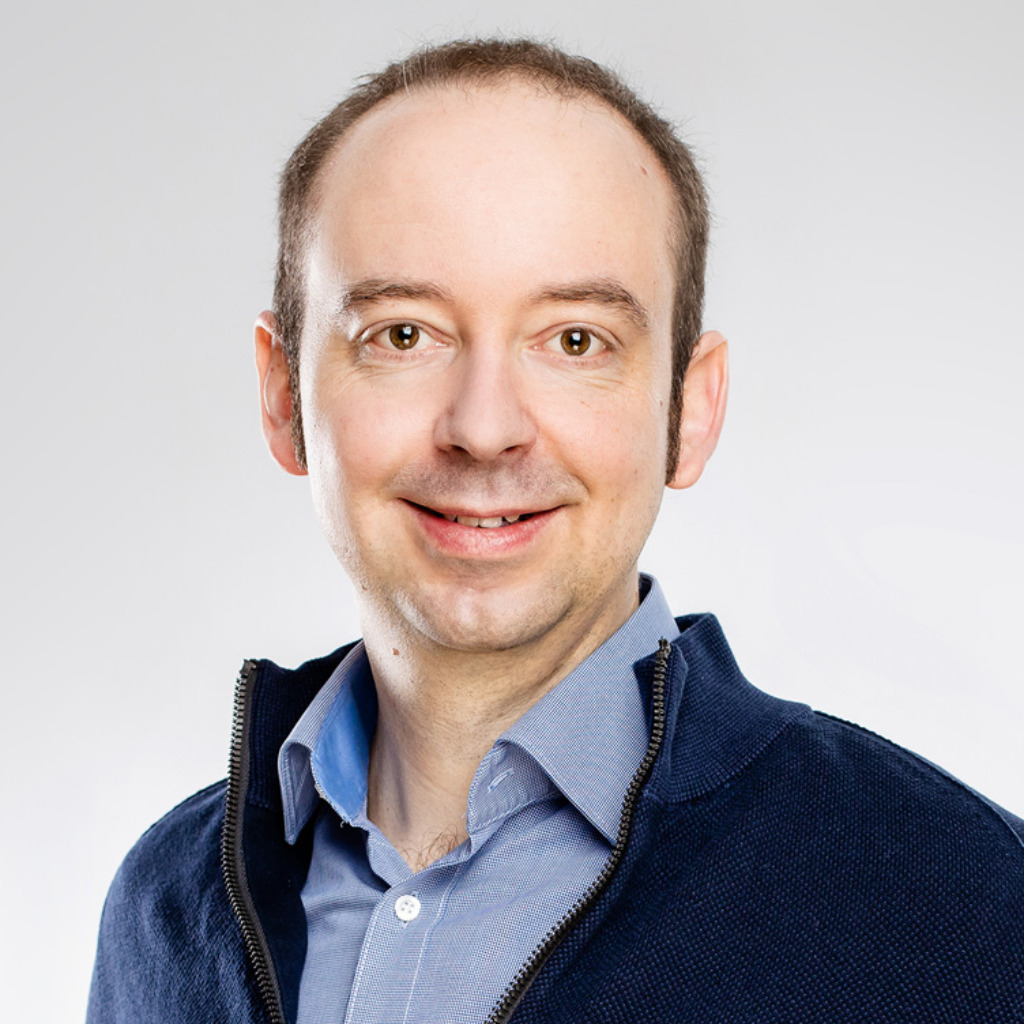
Martin Voigt
Elevait
Dr. Martin Voigt, an accomplished leader in the hyperautomation industry, has a rich background in software engineering, semantic technologies, and information visualization, holding a diploma and doctorate from TU Dresden, Germany. His tenure with AI4BD since 2014 highlights his strategic leadership in research & development, guiding the company's innovative projects in machine learning, software, and web engineering, as well as knowledge graphs. Ascending to Managing Director of AI4BD Deutschland GmbH in 2015, Dr. Voigt showcased his expertise in driving technological advancements and fostering a culture of innovation. The inception of elevait in 2021 marked a new chapter in his career as Managing Director and Partner. Under his leadership, elevait has grown to a dynamic team of about 85 people, where he spearheads the company's vision and mission, steering the development of a robust product portfolio and leading the charge in technical innovation.
Keynote Title
Overcoming boundaries: How Linked Data and Machine Learning are Transforming Enterprise Software
In a world driven by data, the ability to effectively structure, process and utilize information is more crucial than ever. However, traditional enterprise software and its technological paradigms often reach their limits. In this keynote, we outline how the elevait suite pushes the boundaries of traditional data processing by applying linked data principles and machine learning. Our platform is domain and use case agnostic, but is widely used in the construction industry to automate business processes and increase efficiency. Learn how we use advanced workflows to semantically annotate data, train ML models and generate data according to linked data principles and use it in process automation. We also show how no-code tools are used to define business rules and how automatically generated user interfaces make it easier to interact with this data. Using concrete examples from our platform, we will demonstrate how these technologies are implemented in real-life scenarios to create precise, scalable and efficient solutions. We will also share valuable lessons learned that can help you drive your development and research projects forward.
Program
The LDAC program includes a Workshop with Poster Track and Industry Track, as well as a Summer School.
The LDAC 2024 workshop is organised as a two-day plenary event. This includes keynote presentations, plenary research paper sessions, a poster session, and an industry track.
Summer School
This year, there will again be an LDAC Summer School, directly preceding the workshop, and in the same location. The LDAC Summer School will take place 10-12 June, in Bochum, Germany. This Summer School focuses entirely on the use of linked data and semantic web technologies for the built environment. In this summer school, experts and researchers in the use of these technologies for the AEC industry will share their knowledge and expertise to a limited audience of 40 participants. The summer school targets starting PhD students and starting industry professionals within the AEC industry. Coding experience is highly recommended.
Important: The Summer School participants will present the results of their work on Thursday afternoon, right after the lunch break, and before the poster and industry track!
Research track
All submitted papers are scheduled in 3 plenary sessions, spread over Thursday and Friday. No sessions are planned in parallel and everything is plenary.
Thursday morning (10h30-12h30): CONSTRUCTION - chair Pieter Pauwels
- Using ICDD for BIM and GIS Integration in Infrastructure.
Judith Krischler, Paul-Christian Schuler, Jakob Taraben and Christian Koch
article - presentation - Advanced Process Representation for Semi-Automated Linking between Construction Schedules and IFC files.
Jonas Schlenger and André Borrmann
article - presentation - Aligning openCDE APIs with Linked Building Data through Constrained Containers in Common Data Environments.
Oliver Schulz and Jakob Beetz
article - presentation - A standard-based ontology network for information requirements in digital construction projects.
Martina Mellenthin Filardo, Liu Liu, Philipp Hagedorn, Sven Zentrgraf, Jürgen Melzner and Markus König
article - presentation - A Method to Unify Custom Properties in IFC to Linked Building Data Conversion.
Jyrki Oraskari, Lukas Kirner, Marit Zöcklein and Sigrid Brell-Cokcan
article - presentation
Friday morning (10h30-12h30): ONTOLOGIES - chair Walter Terkaj
- WoTDT: an Extension of the WoT Thing Description Ontology for Digital Twins in the Construction Domain.
Salvador González-Gerpe, Andrea Cimmino, Socorro Bernardos, María Poveda-Villalón and Raúl García-Castro
article - presentation - Internet of Simulation ontology (IoSO): Integration of Building Performance Simulations in IoT Systems.
Zehor Hounas, Maxime Lefrançois, Antoine Zimmermann and Bruno Traverson
article - presentation - How much OWL do you need to know to make sense of building ontologies?
María Poveda-Villalón, Sergio Carulli-Pérez and Raúl García-Castro
article - presentation - Defining semantics for digital twins of façade component testing facilities.
Calin Boje, Nico Mack, Sylvain Kubicki, Antoine Dugué and Pascale Brassier
article - presentation - Semantic Interoperability using Ontologies and Standards for Building Product Properties.
He Tan, Rahel Kebede, Annika Moscati and Peter Johansson
article - presentation
Friday afternoon (14h-15h): SEMANTICS - chair Madhumitha Senthilvel
- Relative Location Ontology: An ontological model for representing directional topological relationships between spatial entities in oriented space.
Anne Göbels and Jakob Beetz
article - presentation - Standard-oriented ontology export of domain catalogues from data dictionaries.
Sebastian Schilling and Christian Clemen
article - presentation - infraspatialOT: An ontology for the representation of spatial relationships in road infrastructure.
Ina Heise and André Borrmann
article - presentation
Industry Track
As part of the workshop, we invite companies to present interesting cases, innovation, research, and development related to Linked Data in Architecture and Construction in an industry marketplace. Do you have relevant software to present to workshop participants, or are you in an AEC organisation that deploys, requires or consumes linked data, then this is your place to be. The industry market place will take place over the two workshop days, and especially Thursday afternoon, from 15h to 18h and allows you to talk to industry representatives, researchers and summer school participants during the breaks and sessions.
MARKET PLACE (Thursday, 15h-18h)
- Pallas
- Tennet
- elevait
- BDTA
- neanex
- bSDD
- BIMConnected
- Schüssler-Plan Digital
- XRTech
- NMBU
- QAECY
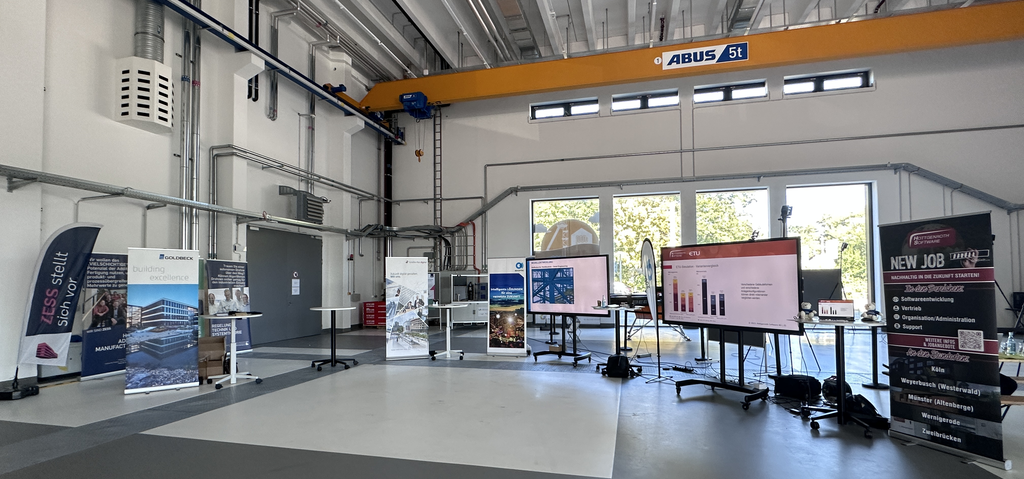
Poster Track
For the LDAC2024 Workshop, we introduce a new PhD poster track to present and demonstrate ongoing research and development related to Linked Data in Architecture and Construction. Posters will be presented in a separate session where attendees can move between posters, encouraging in-depth discussions with other participants and experts in the field. We particularly encourage early-career PhD researchers to submit a poster with their research approaches and results. A poster presentation may also include a live demonstration of research prototypes alongside the poster.
POSTERS (Thursday, 15h-18h)
- Linked Data Service for Improving Portability of a Model Predictive Controller.
Lasitha Chamari, Shalika Walker, Ekaterina Petrova, Pieter Pauwels
extended abstract - Ontology-based approach for fault detection and diagnosis and fault location assessment in air handling units.
Sebastian Blechmann, Hannah Görigk, Rita Streblow and Dirk Müller
extended abstract - Semantic Web for Streamlining Building Design and Permitting Processes.
Pille-Riin Peet, Ergo Pikas and Aime Ruus
extended abstract - A conceptual system architecture for enriching Digital Twins with material performance data using symbolic and sub-symbolic Artificial Intelligence.
Julia Kaltenegger, Ekaterina Petrova, André Borrmann and Pieter Pauwels
extended abstract - A web application for automated building energy analyses and monitoring using semantic web technologies.
Lu Wan, Ferdinand Rossa, Torsten Welfonder, Ekaterina Petrova and Pieter Pauwels
extended abstract - The development of an application layer connected to a knowledge graph for the continuous calculation of energy performance indicators.
Sergio Acero González, James Allan, Hashem Birahjakli, Emanuele Laurenzi, Wolfram Willuhn, Edrisi Munoz and Sascha Stoller
extended abstract - A hybrid approach of semantic modeling and co-simulation for a better consideration of the physics of physical phenomena in a smart building.
Zehor Hounas, Maxime Lefrançois, Antoine Zimmermann and Bruno Traverson
extended abstract - Knowledge modeling and provision for circular economy aspects of municipal infrastructure projects.
Jonas Maibaum and Philipp Hagedorn
extended abstract - Knowledge Graphs for Building Design Decisions.
Daniel Napps
extended abstract
Registration
Registration
Registration for the summer school is now closed. You can only register for the workshop from this point onwards!
What is included
Registration for the summer school is now closed. You can still register for the workshop. By default, a ticket to the summer school includes access to the workshop, because the workshop sessions are of use to summer school participants (advanced lectures), and the hackathon final presentations are scheduled during the workshop! Indeed, the summer school and workshop programs are overlapping, in order to make the week program as useful as possible for everyone.
Process
Your registration for the Summer School is subject to approval by the SSoLDAC Organizing Committee. This is to make sure that participants have the correct expectations and fitting background information.
Registration for the Summer School happens on a first come, first serve basis. The number of summer school participants is limited to 40. The summer school is now full, and the registration for the summer school is now closed.
Prices
The following registration options are available:
- Early bird Workshop (until 22 April - extended): 250.00 EUR
- Early bird Summer School + Workshop (closed): 500.00 EUR
- Regular Workshop (after 22 April - extended): 300.00 EUR
- Regular Summer School + Workshop (closed): 600.00 EUR
Cancellation policy
Please be advised that cancellations after 17 May 2024 will be subject to a charge of the full paid registration fee. To avoid a cancellation fee, please provide a cancellation notice at least until 17 May 2024 via ldac2024@linkedbuildingdata.net.
Venue
Venue and Travel Information
The LDAC2024 Summer School and Workshop will take place in the innovation quarter MARK 51°7 at Ruhr University Bochum (RUB).
Venue
The LDAC2024 Summer School and Workshop venue is located in the center of the Ruhr metropolitan region in Germany. With almost 70 hectars in size and the motto "knowledge creates economy" the emerging innovation quarter focuses on bringing together research and industry - right adjacent to Bochum's city centre. While the LDAC Summer School is hosted in the RUB Maker Space, a place where innovation is created in the form of prototypes and discussions, the LDAC Workshop takes place in the Research Centre for the Engineering of Smart Product Service Systems (ZESS), which aims at forming cooperations between research and practice. The Chair of Computing in Engineering at the Department of Civil and Environmental Engineering of RUB provides the local organization.
With almost 40,000 students, 20 faculties, 12 collaborative research centers and more than 135 spin-offs (since 2019) the Ruhr University Bochum is one of the biggest universities in Germany, providing excellent research, teaching and transfer-orientation in Bochum, right in the centre of the Ruhr metropolitan region.
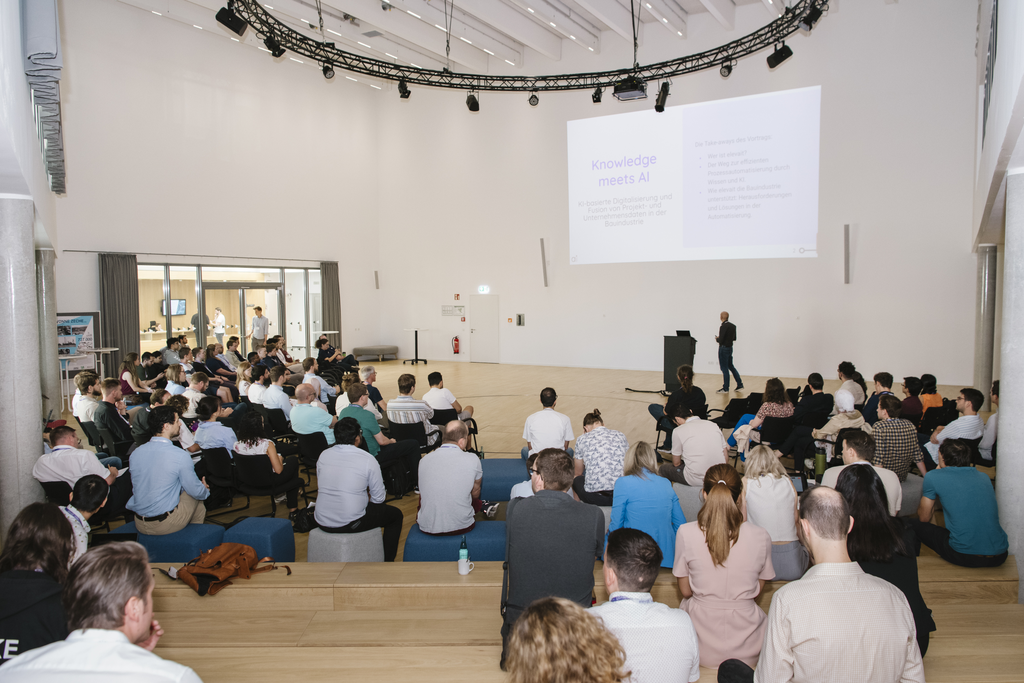
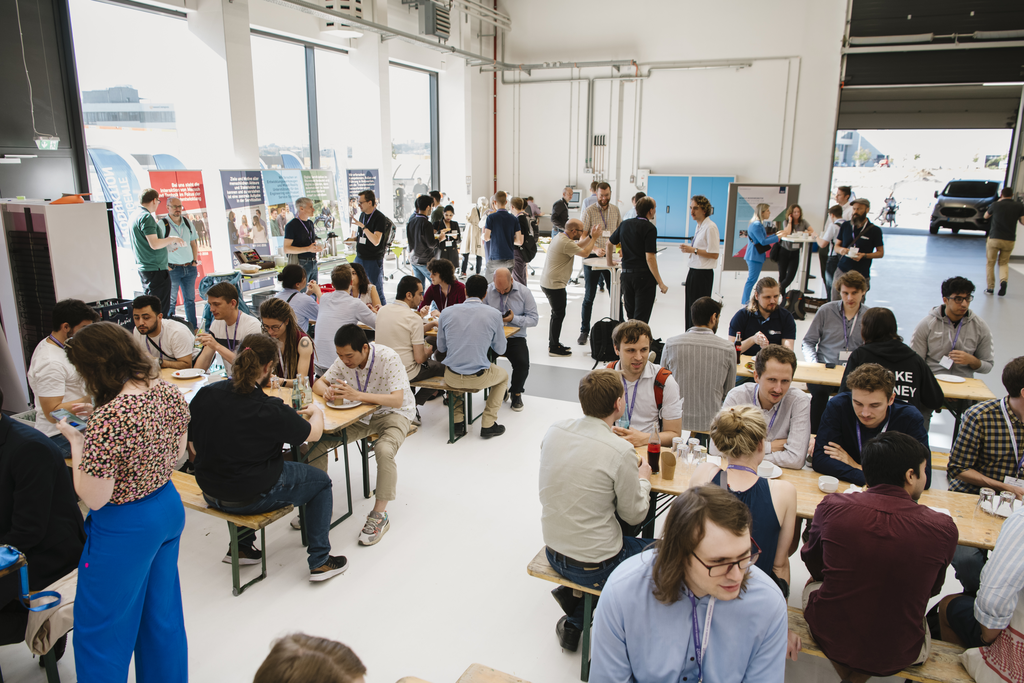
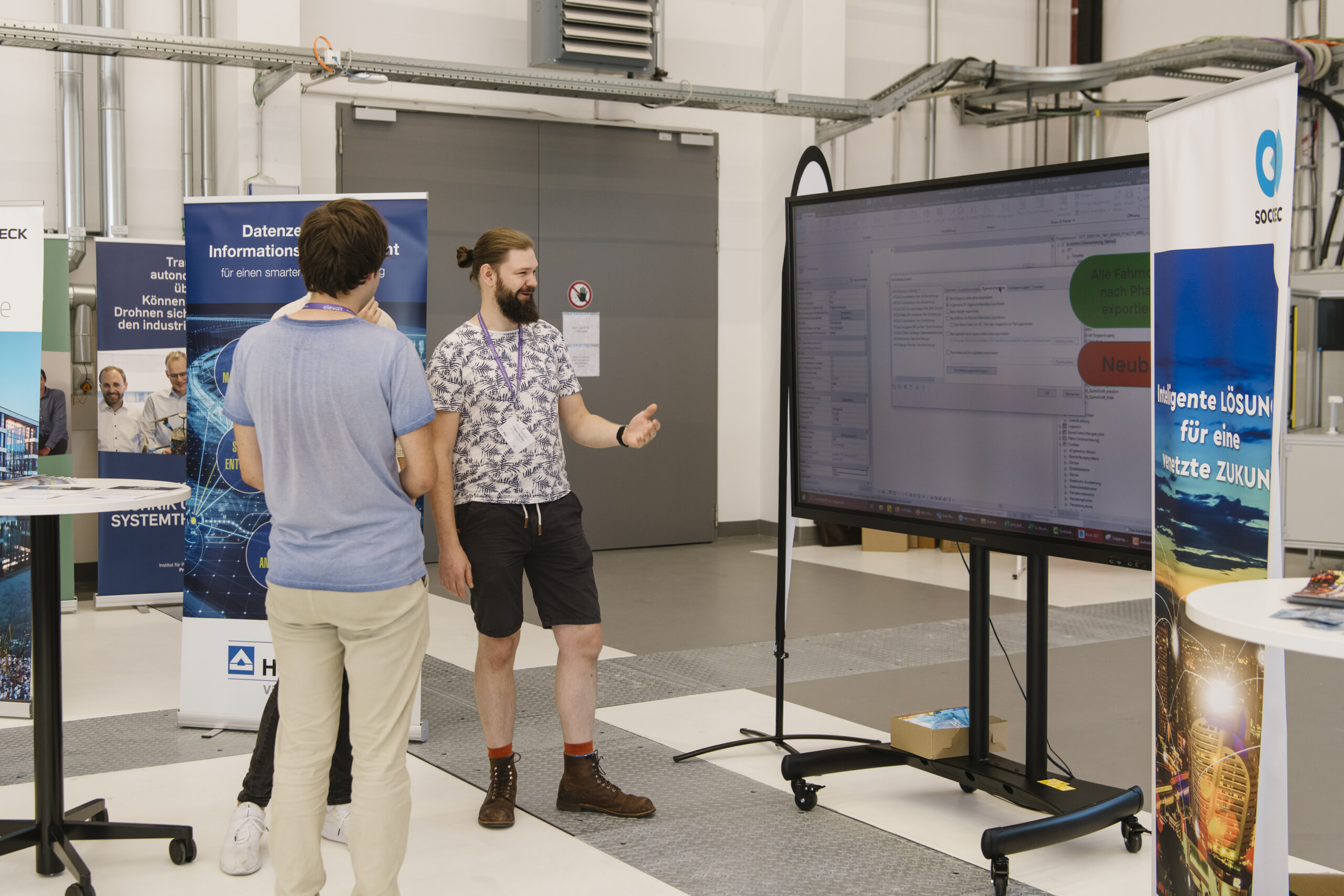
Travel from Dortmund Airport
The nearest airport is the Dortmund airport (DTM) in Dortmund. From Dortmund airport, public transportation is available to Bochum central station with bus and regional trains via Dortmund central station. From Bochum central station, tram lines 302, 305, and 310 take you to the LDAC2024. Public transportation tickets are available via VRR.
Travel from Düsseldorf Airport
Düsseldorf Airport (DUS) is within short distance of Bochum as well. As a central airport in the Ruhr area, there are many international connections and public transportation to Bochum is frequent. The trip from Düsseldorf to Bochum is available from the DUS airport train station directly via regional trains to Bochum central station. From Bochum central station, tram lines 302, 305, and 310 take you to the LDAC2024. Public transportation tickets are available via VRR.
ZESS directions
RUB Makerspace directions
Accomodation
For accommodation during the LDAC2024 we recommend the listed accommodations. In addition to the three hotels in the city centre of Bochum, there is also the possibility to book rooms at reasonable prices in the guest house of the Landesspracheninstitut (LSI)/state language institute of the Ruhr University Bochum. When choosing a hotel, you should make sure that a tram stop on line 302 is nearby so that you can get to the ZESS and Makerspace venue quickly. All accommodation within walking distance of the main railway station is therefore well located. It is necessary to travel by bus from the LSI.
- Mercure Hotel Bochum City: https://www.mercure-hotel-bochum.de/en/
- B&B Hotels Bochum https://www.hotel-bb.com/en
- Nena Apartmens Alleestr. https://www.nena-apartments.de
- Accommodation in the guest house of the state language institute (LSI) of Ruhr-University Bochum: https://www.lsi-bochum.de/en/accommodation
Organisation
Organisation
The LDAC Workshop and Summer School are organised by a group of Local Organisers, an LDAC Team, and a Summer School Organiser's Team.
Local Organisation
LDAC Committee
Support
Support
You can support LDAC2024 through one of the options in the sponsoring package (silver, gold, diamond). If you are interested, then please get in touch via ldac2024[AT]linkedbuildingdata.net. Also any other message related to this website or to LDAC review procedures and organisation can be sent to this address.
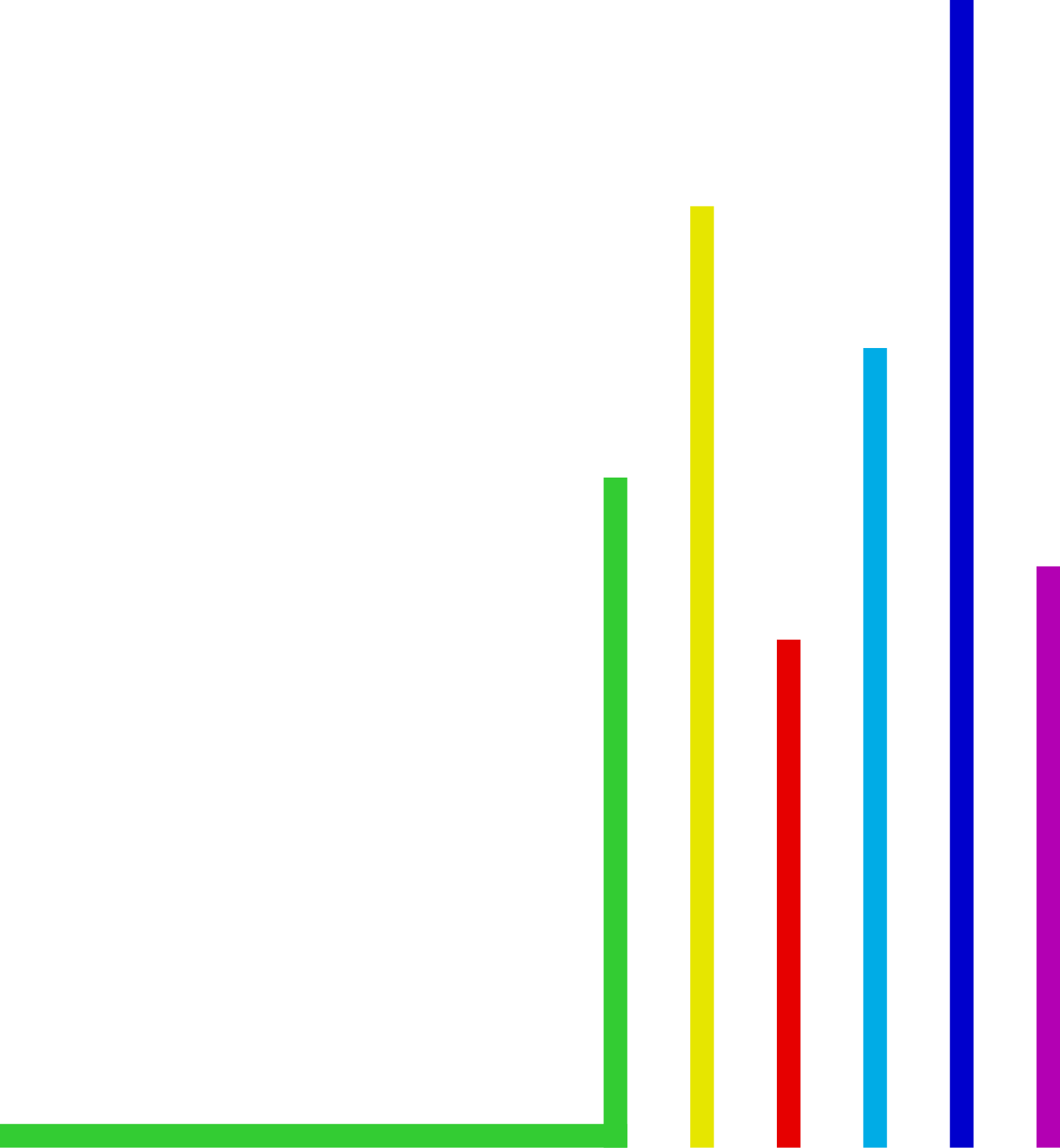
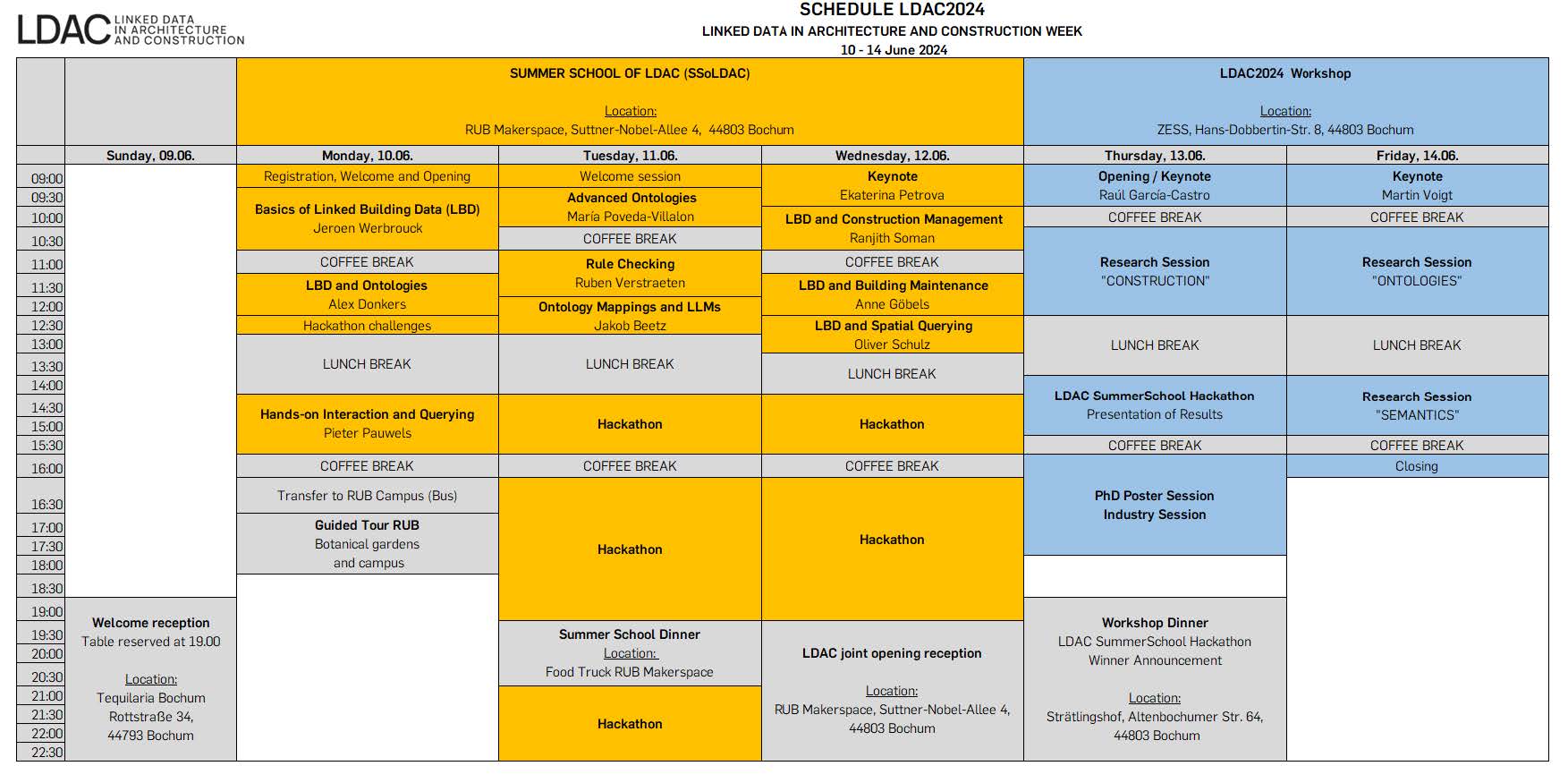


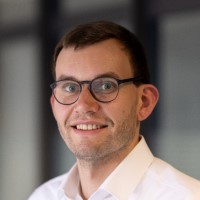
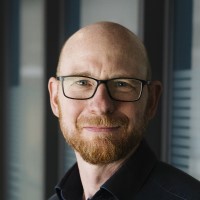
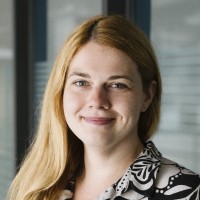
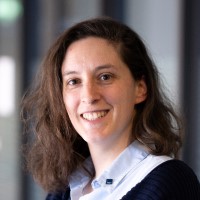
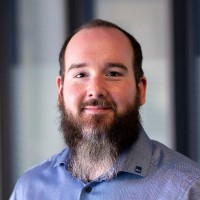
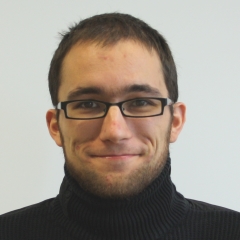
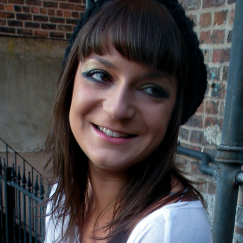
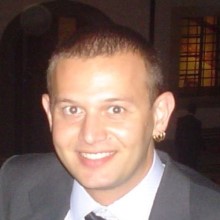
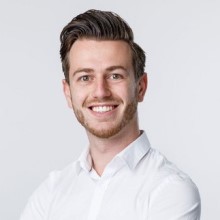
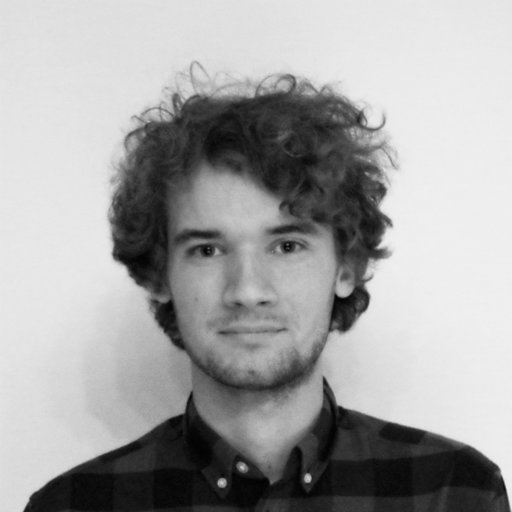
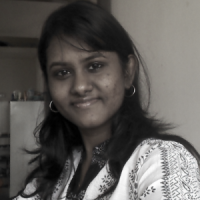



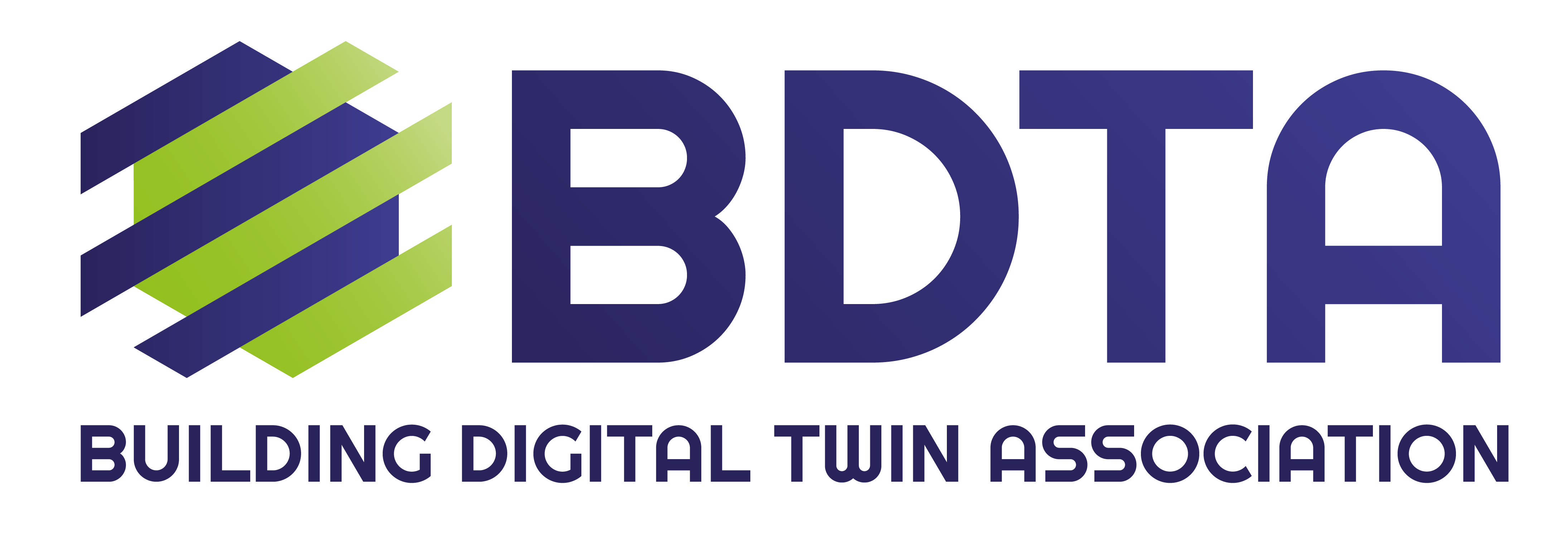


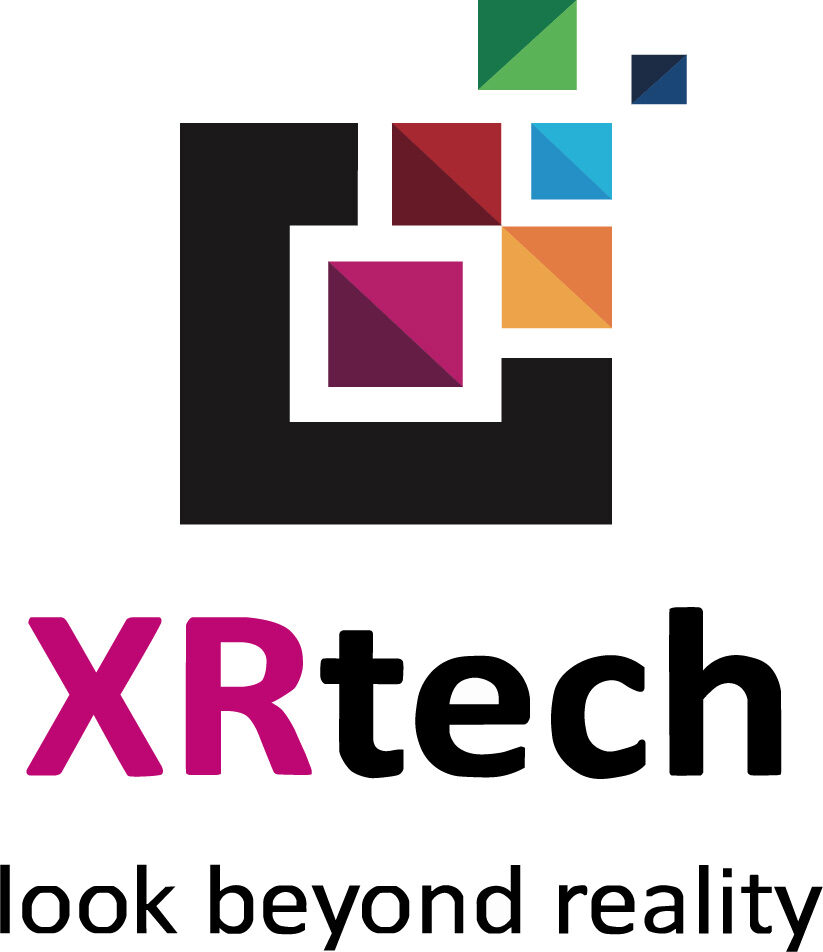
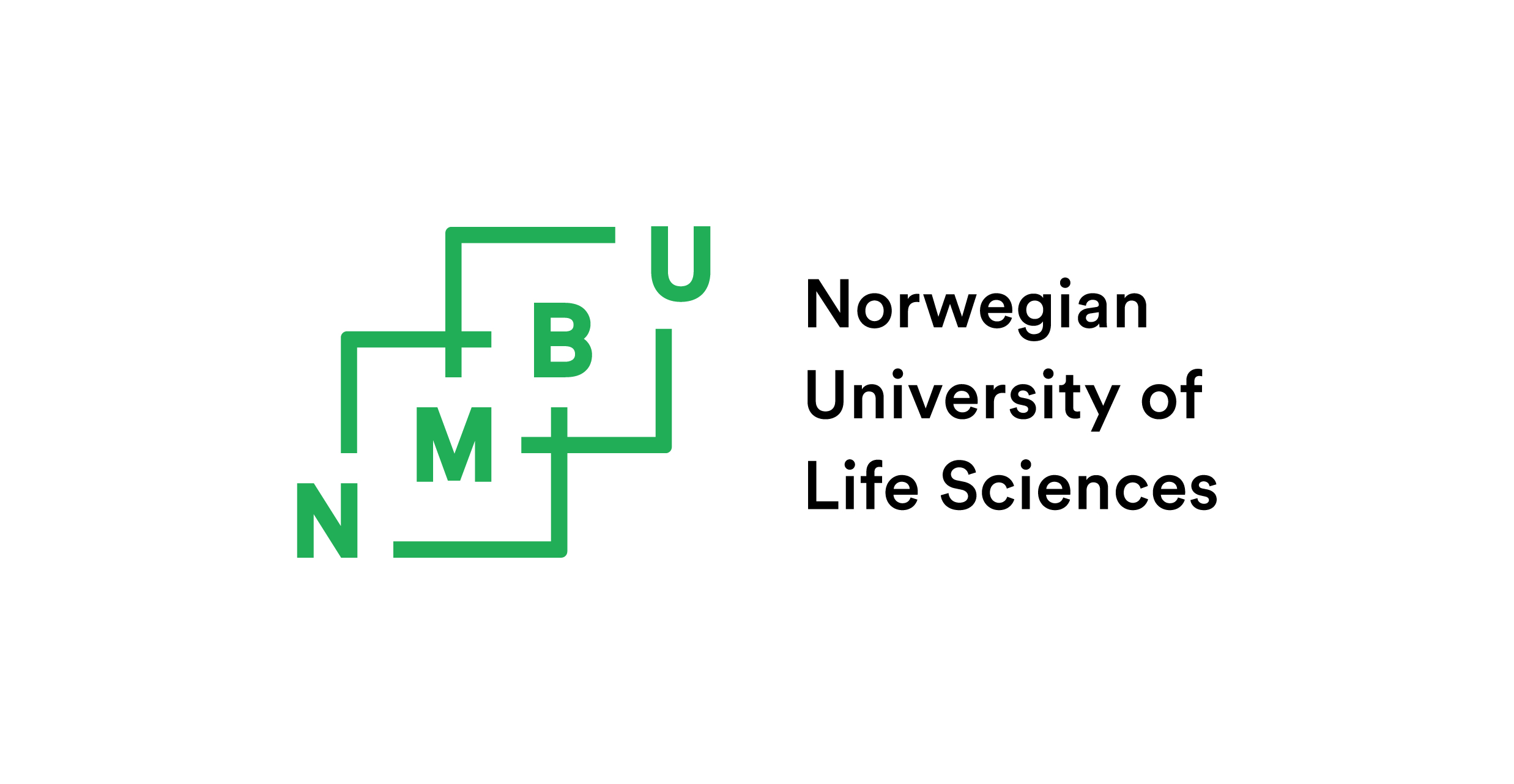
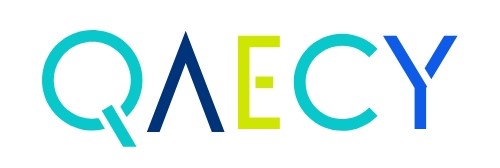
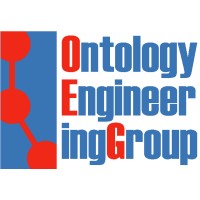
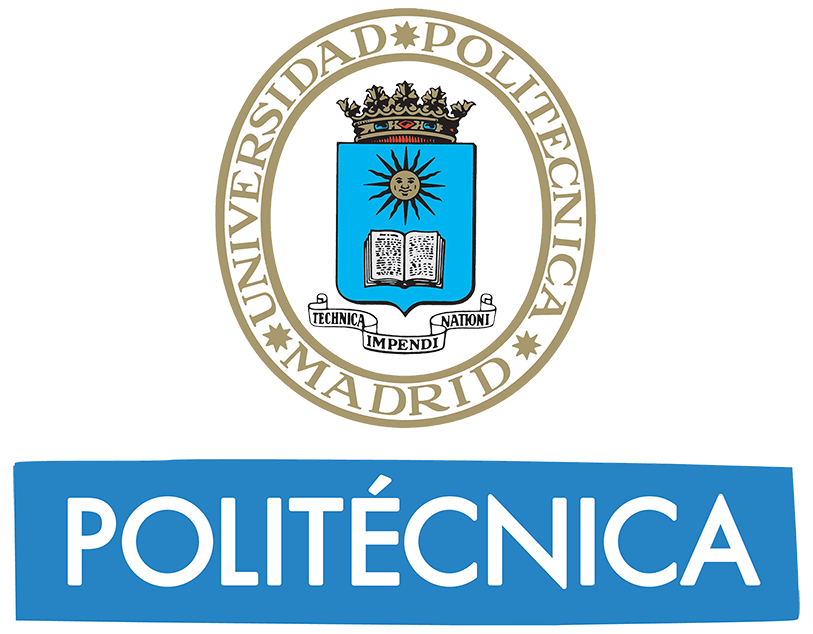
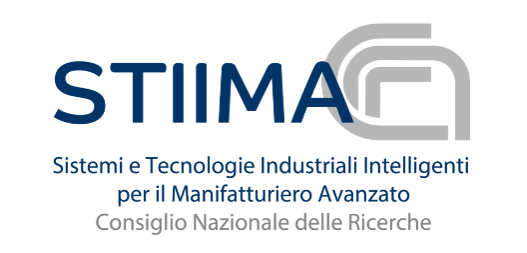

.png)


